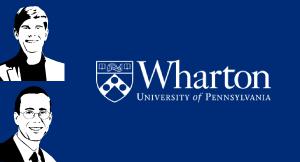Nicolaj Siggelkow, Wharton School
David M. Knott Professor
Nicolaj Siggelkow Biography
Nicolaj Siggelkow is the David M. Knott Professor at the Wharton School, University of Pennsylvania. He is a Co-Director of the Mack Institute for Innovation Management at Wharton. He studied Economics at Stanford University and earned an M.A. in Economics from Harvard University. He received a Ph.D. in Business Economics from Harvard University and the Harvard Business School. Professor Siggelkow has been the recipient of multiple MBA and Undergraduate Excellence in Teaching Awards, including the Class of 1984 Award presented to the faculty member with the highest teaching rating in the MBA classroom, the Helen Kardon Moss Anvil Teaching Award, the Wharton Award, and the Wharton Graduate Association Student Choice Award. His research has been published in the leading management journals, including Academy of Management Journal, Administrative Science Quarterly, Journal of Industrial Economics, Management Science, Organization Science, and Strategic Organization. In 2008, he received the Administrative Science Quarterly Scholarly Contribution Award for the most significant paper published in ASQ five years earlier. Nicolaj is a member of the Editorial Review Boards of Administrative Science Quarterly, Organization Science, Strategic Management Journal, Strategic Organization, and Academy of Management Perspectives.
His current research focuses on the strategic and organizational implications of interactions among a firm’s choices of activities and resources. In particular, his research has focused on three broad questions: How do firms develop, grow and adjust their set of activities over time? How does organizational design affect a firm’s ability to find high-performing sets of activities? What role do interactions among a firm’s activities play in creating and sustaining competitive advantage? To address these questions, he has employed a range of methodological approaches, including in-depth field studies of individual firms, econometric methods for large-scale data sets, formal modeling, and simulation models.
